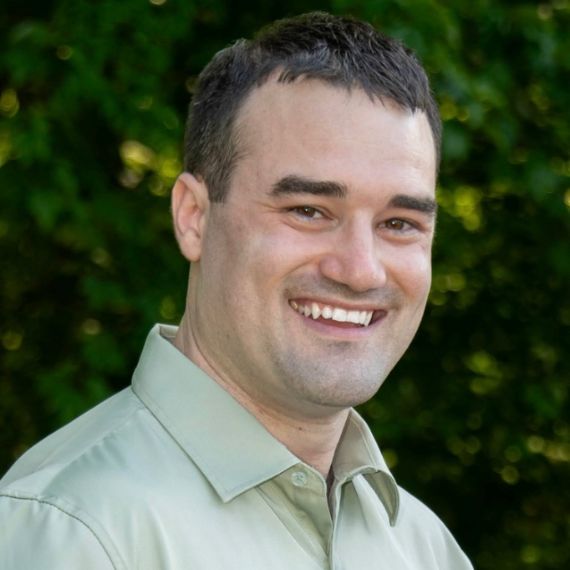The Master of Arts in Counseling (MAC) is a 60-credit degree program, designed to develop highly-qualified healthcare professionals and leaders in the field of clinical mental health counseling (LMHC/LPC licensure preparation). Our students develop the skills needed to meet the increasing demand for counseling services in hospitals, schools, universities, social service agencies, mental health centers, substance abuse treatment clinics, and private companies. The MA in Counseling programs adhere to a scientist-practitioner-advocate model.
We invite you to download the Master of Arts in Counseling flyer to hear what a student has to say about their experience, and more!
Federal Loan Updates: What They Mean for You and How We Can Help
-
Licensure Eligibility
Upon successful completion of this 60-credit degree program, a passing score on the national exam, and the required supervised pre-master's and post-master's training hours, students are eligible for independent licensure designations of Licensed Mental Health Counselor (LMHC) or, depending upon where you live, Licensed Professional Counselor (LPC). Further, the addictions counseling degree option includes the recommended coursework to apply for the Licensed Addiction and Drug Counselor (LADC-I) exam for mental health addictions professionals, once fieldwork requirements are met.
Each state's licensure-granting body has established the minimum requirements relating to coursework and fieldwork commitments for a student to earn a graduate degree that is eligible for licensure. The MA in Counseling degree meets the educational eligibility requirements to qualify students to sit for the exam for Allied Mental Health Professional licensure in the Commonwealth of Massachusetts*, as well as in most U.S. states.
Some states require specific electives and additional field hours. Consult your state license board for the most up-to-date requirements and speak to the graduate counseling program director about your future licensure goals.
* The Massachusetts Board of Registration of Allied Mental Health and Human Services Professionals has established the minimum requirements for coursework and fieldwork needed for a student to earn a graduate degree and be eligible for licensure as a Licensed Mental Health Counselor (LMHC). The minimum requirements are:
- Provide 60 credit hours of graduate-level instruction, including coursework in the following content areas (per 262 C.M.R. 205(2)(d)).
- Prepare to sit for the exam for licensure as a Licensed Mental Health Counselor (LMHC)
Course Format
The Graduate Counseling Programs are hybrid, meaning that some classwork takes place on campus and other classes occur online. Most GCP classes meet on nights and some weekends, which allows students to engage in clinical work during the weekdays.
Curriculum
The MA in Counseling programs offer flexible hybrid learning formats (on-campus, online synchronous, and combined modalities), as well as hands-on field experiences, to meet the needs of both working professionals and those engaging in graduate education full-time. The curriculum provides rigorous scholarship focused on critical theories, research, and applications of counseling, with an emphasis on the social, political, economic, and cultural contexts of mental health treatment.
Application Deadlines
Fall Entrance: April 15
Spring Entrance: October 15
Summer Entrance: March 15
Rolling admission after preferred admission deadlines. On a space-available basis, applicants are encouraged to apply after application deadlines and will be reviewed as received.
Social Justice Scholarship
Aligned with the Graduate Counseling Program's (GCP) mission, the Social Justice Scholarship is awarded to those who exhibit an unwavering dedication to social justice. This scholarship is crafted to empower students, unlocking their potential to become transformative leaders in the counseling field.
For the 2025-2026 academic year, every applicant to the MA in Counseling program for the summer or fall 2025 semesters who is accepted will receive this exceptional scholarship. To qualify:
- Submit your application by March 1 (be sure to carefully review application materials, the GCP mission statement, and prerequisite courses)
- Interview with the program director upon invitation
Experience the Regis Difference
You are able to take two graduate courses before applying or being accepted into the Regis College program. Check to see if your employer or undergraduate institution has a partnership agreement with Regis, for discounted tuition or to transfer our graduate credits back to meet your undergraduate requirements.
Please contact the graduate admission office at 781.768.7330 or graduatedepartment@regiscollege.edu for more information. Note that completion of coursework as a non-matriculated student does not guarantee acceptance to the program.
Why Choose the Regis MA in Counseling Program?
-
Program Objectives
Upon successful completion of the program, students should be able to:
- Implement culturally competent mental health counseling, prevention, assessment, and treatment services for all clients.
- Synthesize theoretical, evidence-based, and advocacy literature into practice with individuals, organizations, and communities across a myriad of settings.
- Establish a professional counseling identity through integration of self-awareness with counseling roles and reflective practices.
- Display appreciation, value, and respect for the diversity and individuality of human beings throughout the lifespan
- Apply ethical, legal, and professional standards of practice.
- Demonstrate competence in counseling in coursework, practica, and internship, and qualify to sit for the licensure exam in mental health counseling.
- Synthesize community and preventative approaches of public health with counseling.
- Integrate cultural competence and advocacy in examining the mental health care of underserved individuals around the globe.
- Engage in critical dialogue about healthcare policies, systems of healthcare delivery, and advocacy strategies to improve the quality of care and to promote social justice.
-
Gaining Experience
Regis College's MA in Counseling programs provide you with courses that are dynamic and practical. You will engage in frequent clinical role-play, case assessments and simulations, and practice supervision and consultation roles. Our MA in Counseling degrees include practicum and internship placements that are developmentally appropriate and matched to the individual student’s readiness and clinical interests.
-
First-Year Practicum Training Opportunities
Regis College's Master of Arts in Counseling graduate students can apply to a wide variety of mental health delivery sites with whom we have training partnerships. These settings provide observational and mentored participation in interventions with those receiving a wide range of services, designed at a pace for student’s professional development as counselors-in-training. Students may opt for an additional semester of practicum to gain experience and explore working with different types of treatment populations.
-
Second-Year Internship Opportunities
Our students enter their second-year field experience with the theoretical and practical tools to provide therapeutic services under the supervision of licensed mental health professionals at our training partnership sites. As your interests and skills advance, we will connect you with sites where you have more hands-on clinical experiences. These internships often act as a year-long exploration for future employment.



